Legal ‘change makers’ ambitious for impact

Roula Khalaf, Editor of the FT, selects her favourite stories in this weekly newsletter.
The initial focus when a law firm brings in innovations is on new tech and teams — often with unusual spellings to signal novelty. But the changes would not take place without the individuals who take a lead on making them happen. The FT Innovative Lawyers awards identify the most effective of these “change makers” and a judging panel picks the most outstanding.
They were most impressed by Danielle Benecke, of Baker McKenzie Machine Learning. She was far-sighted on the impact of artificial intelligence on legal work, and the practice is now a leader in understanding and applying generative AI. The effects are seen in work for clients, for the firm itself, and have also been applied to a global study on child detention.
The judges also commended Miriam Buhl, whose efforts mean that lawyers at all levels at Weil, Gotshal & Manges undertake pro bono work, and support it with the firm’s resources.
Profiles compiled by RSGI researchers and FT editors. “Winner” indicates an Innovative Lawyers 2023 award, the rest are in alphabetical order of law firm name.
Judging panel
For the Innovative Practitioner and Change maker awards, winners were selected by a panel of judges from a shortlist compiled by RSGI. The panel comprised:
Harriet Arnold, assistant editor, FT Project Publishing (panel chair); Michael Kavanagh, FT Project Publishing contributing editor; Nathalie Kilby, commissioning editor, FT Project Publishing; Rob Chesnut, former general counsel and chief ethics officer, Airbnb; David Fisher, chief executive and founder, Integra Ledger; Laura Garcia, senior counsel, Ironclad; Jordan Schuetzle, product marketing manager, Thomson Reuters; Julie Sculli, assistant dean, office of graduate degree programmes, Columbia Law School; Laura Wenzel, global product marketing director, iManage; Yasmin Lambert, managing director, RSGI.
WINNER: Danielle Benecke
Founder, Baker McKenzieML
Baker McKenzie
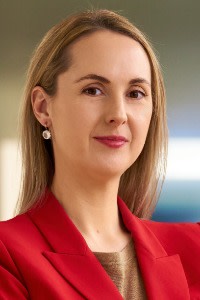
Danielle Benecke helped found the firm’s machine learning practice, a global team of lawyers, data scientists and engineers. In 2017, while helping clients to set up artificial intelligence (AI) tools, she realised that the technology would fundamentally change the law firm’s business model — and new legal resources would be needed in response.
Formally launched in 2021, Baker McKenzieML works with clients on projects such as creating customised generative AI for employment law queries.
The team has been out in front in understanding the potential of this new technology — including use of OpenAI’s GPT-3 since February 2022, well before its official launch.
As Benecke puts it, the question for lawyers everywhere is: “What does it mean to be a trusted adviser in an AI-enabled world?”
Andrew Terrett
National director, legal technology and service delivery
Borden Ladner Gervais
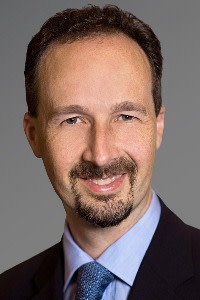
Andrew Terrett started out in legal technology long before it made serious inroads in the legal industry, by building neural networks — a type of AI system modelled on the human brain — at the University of British Columbia in 1994.
Now, he plays a vital role in the digital transformation of the firm. For example, he has led the rollout of applications for automating civil litigation and streamlining contract processing and document management.
Terrett heads Borden Ladner Gervais’s Digital Hub, a team of developers and analysts that design user-friendly apps, such as a time-management tool, and implement the automation of routine tasks for the firm. By analysing documents and emails and using automation, the team says, it has saved more than 1.5mn hours of work since its launch in 2020.
Natalie Kernisant
Chief diversity and inclusion officer
Morrison Foerster
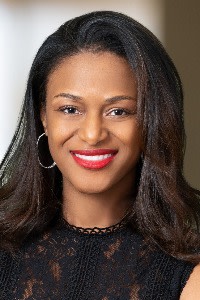
Natalie Kernisant was appointed the firm’s chief diversity and inclusion officer in 2020, following 10 years of implementing its strategic diversity programmes.
She launched an allies network at the firm, which encourages staff to support under-represented groups, and MoFo Navigate, a
co-ordinated series of mentorship and sponsorship programmes — including for specific groups such as one aimed at black, Latino, Asian American and Pacific Islander lawyers. Kernisant led the establishment of the firm’s policy allowing lawyers to claim billable hours for time spent on initiatives promoting diversity, equity and inclusion.
Morrison Foerster was one of the first law firms targeted by the American Alliance for Equal Rights, an anti-affirmative action group. The firm modified the language of a post on its website about diverse recruitment, but Kernisant says the case will not deter the firm’s diversity efforts.
Katy Ryan
Partner
Orrick, Herrington & Sutcliffe
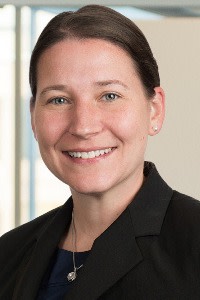
Katy Ryan saw a gap in the market for financial services institutions to manage a complex array of regulatory and licensing requirements — and played a lead role in creating Approved to help fill it. The service was launched in 2018 at law firm Buckley, which merged with Orrick in 2023. The service aims to simplify the process of obtaining and maintaining licences for financial services, such as business lending, mortgages, car loans and debt collection, across different US state jurisdictions. Its technology tracks more than 40,000 licence requirements from more than 275 agencies.
Approved is offered at a flat fee, and is staffed by a variety of professionals, including directors, programme managers, licensing analysts, and technologists. The team reports an annual revenue of about $30mn and is planning to expand into Europe.
David Cohen
Partner
Reed Smith
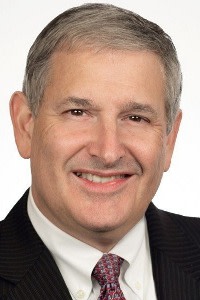
David Cohen leads the firm’s global records and electronic discovery team. He has worked in the field for more than 30 years, participating in the evolution from paper copies to microfilm, email, and other forms of digital records.
Through his work on protocols and with academic institutions, he promotes common US standards for ediscovery. This is a particular focus in light of the emergence of artificial intelligence-generated deepfakes, a development that raises questions over what can be accepted as evidence by courts. He continues to advise clients in complex litigation and overall records management, and has drafted and supported amendments to state and federal rules on ediscovery.
In 2020, Cohen led the design and launch of an ediscovery mobile app that offers checklists and rules of procedure on discovery that is free to the public. It continues to add new content and interactive features as the field evolves. The app has been downloaded more than 4,000 times.
Will Gaus
Chief innovation officer
Troutman Pepper Hamilton Sanders
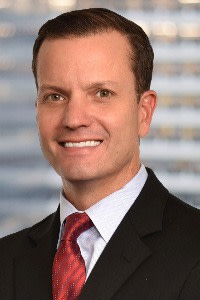
Will Gaus has been tasked with encouraging innovation at the firm since the 2020 merger of Troutman Sanders and Pepper Hamilton. He oversees technology implementation and data science initiatives, including an analytics project to store client relationship data on a single platform, and an app called MobileOn, where people at the firm can access resources to aid them in professional development and wellbeing.
Gaus leads the firm’s generative AI task force and headed the development of the firm’s generative AI chatbot, Athena, which uses OpenAI’s large language model, supplemented by the firm’s own data.
The chatbot has been released to everyone at the firm to encourage experimentation and is used by lawyers for research.
Miriam Buhl
Pro bono counsel
Weil, Gotshal & Manges
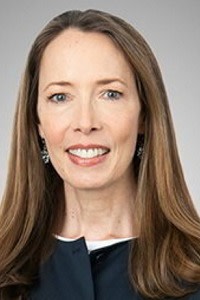
Miriam Buhl has made it an expectation that lawyers at all levels at the firm should commit to pro bono hours.
She supports individual lawyers in their cases and co-ordinates Weil, Gotshal & Manges pro bono resources, such as technology, associates, and external relationships.
Examples of the firm’s impact include work with the Innocence Project, a non-profit organisation that works to overturn and prevent wrongful convictions, on a tech-heavy project to clear a backlog of 5,000 prisoner requests for aid in 2019 and helping to achieve the 2023 exoneration of Tyrone Day, who was wrongly imprisoned in 1990.
Buhl has overseen Weil, Gotshal’s lawyers working on many projects, including assisting the Public International Law and Policy Group, a global pro bono law firm, on a draft law for a Ukrainian war crimes court.
Since Buhl joined Weil, Gotshal in 2005, its lawyers have committed more than 1mn pro-bono hours. They added more than 80,000 hours last year.

Comments